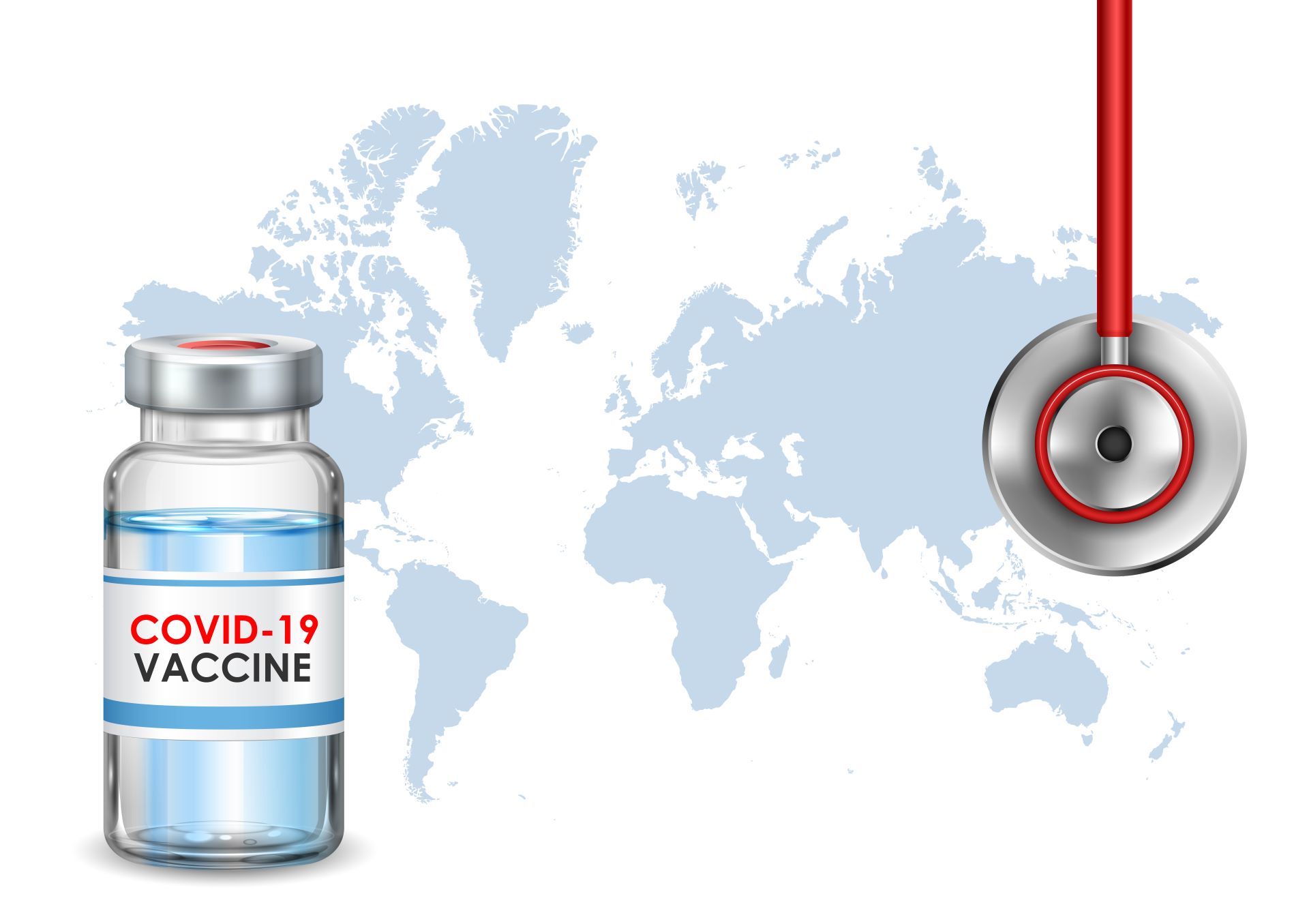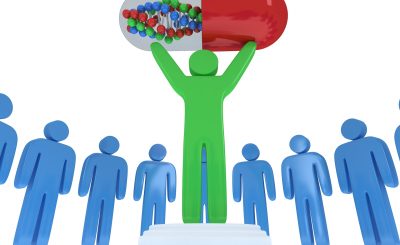“It was the best of times, it was the worst of times..’’ – Charles Dickens
This quote, perhaps, sums up the adventures of the pharma industry in 2020 precisely. The year has seen the pharma companies fighting a dual battle. On one hand, the pharma companies too were swept away by the COVID-19 wave, disrupting their business structure, impacting the operations, supply chains, and the resources just like all other businesses. The industry is still struggling to adopt the new normal, rearranging their business models, coping with the loss of opportunities and revenues. On the other hand, it is the only industry that is looked upon as a saviour to win the battle against the coronavirus and is now under tremendous pressure to come up with new drugs and vaccines to fight the COVID-19 pandemic.
Though we all know the worst things that occurred in 2020, let’s take a look back at the best things that happened in pharma in this year.
AI getting stronger
The increasing impact of AI on pharma can be summarised by the fact that the amount of venture capital funding in AI-biotech startups is increased by about 23% (as of November) in 2020. The total amount is close to $1.9 billion and is way bigger than 2019 as well as 2015, 2016, and 2017 combined. At the heart of these investments are the drug discovery and development programmes which are now going to use AI-based algorithms to expedite the process of molecule screening and drug design. The big pharma companies are not too behind and several of them have partnered with the AI-based firms for diverse projects including small molecule identification, drug repurposing, clinical trials, precision medicine, target identification, and many more.
The following table highlights some of the notable collaborations between the pharma companies and the AI firms in 2020.
|
Pharma company |
AI firm | Partnership |
| Bayer | Exscientia | A $266 million deal to leverage AI to accelerate drug discovery programmes on oncology and cardiovascular diseases. Under the terms, Exscientia will receive upfront fees, ongoing research funding, and clinical milestone payments. |
| Bayer | Schrödinger | A five-year partnership to create new software that would screen and design synthetically feasible compounds. Under the agreement, Schrödinger will provide its machine learning capabilities and technologies for molecular design, while Bayer will share in silico models to predict ADMET properties. |
| Pfizer | Insilico Medicine | A plan to identify new targets and biomarkers. Pfizer has already been using generative models and machine learning programs developed by this firm for mining and analysing omics data, hit discovery, target discovery, and biomarker development. |
| Pfizer | Saama | Pfizer will use Saama’s Life Science Analytics Cloud (LSAC) platform to improve clinical trial models and accelerate getting drugs to the market. Saama’s platform uses Deep Learning to analyse, transform, and predict data. To train Saama’s model, Pfizer will provide its own clinical data. |
| Boehringer Ingelheim | Insilico Medicine | Insilico will leverage its new Pandomics platform to visualise genomics and proteomics data to elucidate cell signaling pathways and disease profiles. |
| Boehringer Ingelheim | BERG | A partnership to investigate inflammatory bowel disease and Crohn’s disease, its causes, biomarkers, drug targets, and therapies using BERG’s web lab platform that allows generating its own data. |
New-age manufacturing
Pharma continues to explore new ways of manufacturing to reduce downtime, to bring versatility in the operations, and, most importantly, to increase production efficiency. New modes of operations like single-use technology, additive manufacturing, IIoT-enabled plants, and continuous manufacturing are taking precedence over conventional manufacturing processes. Some of the few technologies are highlighted below:
Single-use technology – A large number of biologics and biopharmaceutical manufacturers are opting in for single-use systems for their operations. The biggest advantages are shorter processing time leading to faster time-to-market, reduced operational cost (eliminates the need for cleaning, cutting down storage requirements, reduced cross-contamination risks, lower process downtime), and versatile processes.
| Cellexus – a Scottish biotech start up uses a single-use airlift bioreactor system instead of mechanical mixing to move cells and nutrients. The system can be used for a variety of cell cultures and fermentation. |
Additive manufacturing – 3D-printing – one of the prominent types of additive manufacturing is creating a buzz in the pharma industry. The technique utilises powder bed fusion methods that involve a laser to melt and fuse the powder layer-by-layer. Spritam (levetiracetam) – a 3D-printed drug, developed by Aprecia Pharmaceuticals and approved by the US FDA, is already available on the market since 2015. 3D-printing is also being explored for the printing of human tissues and cells and is expected to have huge applications in organ engineering and regenerative medicines.
| In February, Merck KGaA partnered with Additive Manufacturing Customised Machines (AMCM) for the development of a prototype printer that will be used for producing 3D-printed tablets which will be supplied to clinical trials. |
IIoT-based production – As the COVID-19 pandemic paralysed the majority of the pharma operations, forcing them to look for new ways to ensure business continuity, the Industrial Internet of Things (IIoT) has now come into the limelight to help pharma companies thrive in the ‘’new normal’’. The technology offers immense benefits like employee safety and security, workforce tracking, remote asset control, inventory management, waste reduction, longer maintenance cycles, remote assistance, flexibility, and much more.
| Atos – a global leader in digital transformation and and Siemen – a global engineering expert have joined hands in developing an innovative solution based on IoT, AI and advanced analytics. This Process Digital Twin is a complete virtual replica of the pharma production processes, connected with IoT sensors installed on the actual plant, and is currently being tested by one of Atos and Siemens’ global pharmaceutical partners. This potentially disruptive digital twin generates volumes of complex data and gives an instant view of all details of the operations. |
Pharma M&A soaring high
While COVID-19 has slowed down the economical growth, apparently it has not daunted the pharma companies’ interest in the venture sector. The first half of 2020 has seen a dramatic growth of 17% in the pharmaceutical merger & acquisition activities. The majority of these transactions have occurred between the big pharma and small firms explicitly working on immunotherapeutic drugs. Some of the megadeals of 2020 are listed below:
| Companies | Deal worth | Benefits |
| Bristol Myers Squibb acquires MyoKardia | $13.1 billion | BMS will own Mavacamten, a potential first-in-class cardiovascular medicine for the treatment of obstructive hypertrophic cardiomyopathy. |
| Johnson & Johnson completes acquisition of Momenta Pharmaceuticals | $6.5 billion | The deal will broaden J&J’s expertise in immune-mediated diseases and provide access to Nipocalimab (M281) that has been approved by the FDA for the treatment of a rare pediatric disease. |
| Gilead acquires Forty Seven | $4.9 billion | The deal is expected to boost Gileads’s cancer drug pipeline and will provide access to Forty Seven’s lead drug Magrolimab – a monoclonal antibody that is currently being tested against myelodysplastic syndrome, acute myeloid leukemia, non-Hodgkin lymphoma, and solid tumors. |
| Bayer announces acquisition of AskBio | $4 billion | The deal will offer full rights to AskBio’s gene therapy platform, which includes investigational pre-clinical and clinical-stage candidates for the treatment of neuromuscular, central nervous system, cardiovascular, and metabolic diseases. |
| Sanofi acquires Principia Biopharma | $3.4 billion | The deal will strengthen Sanofi’s presence in immune-mediated diseases and provides access to multiple BTK inhibitors that can help stop inflammation and tissue destruction related to autoimmune diseases. |
| Merck acquires VelosBio | $2.75 billion | The deal is expected to strengthen Merck’s oncology pipeline and gives access to VelosBio’s lead antibody-drug conjugate VLS-101 which is being evaluated in clinical trials for the treatment of hematologic malignancies and solid tumors. |
| Novo Nordisk acquires Corvidia Therapeutics | $2.1 billion | The deal will provide access to Corvidia’s Ziltivekimab – an antibody designed to reduce the risk of major adverse cardiovascular events in patients with chronic kidney disease and atherosclerotic cardiovascular disease. |
| Gilead acquires Pionyr Immunotherapeutics Inc. | $275 million | Gilead will provide funding for Pionyr’s clinical programs and has the option to acquire the remainder of the company for a $315 million option exercise fee. |
The race for Covid 19 cure
After witnessing the catastrophe brought down by COVID-19 on the world health and economy, it is no wonder that every pharma company is now focused on just one goal – to find a cure for this fatal infection. And fortunately, the increasing number of COVID-19 vaccines, though many of them are still in the trial phase, means that finally, their efforts are paying off.
Currently, seven COVID-19 vaccines have received regulatory approvals for use whereas 55 are under clinical trials. BioNtTech/Pfizer’s antibody, BNT162b2 is at the forefront with approvals in 10 countries followed by Moderna’s mRNA-1273 vaccine which has been approved by the US and Canada. Several other big pharma are engaged in developing an effective vaccine against COVID-19 including AstraZeneca, Johnson & Johnson, Sanofi, GSK, and awaiting the results of the clinical trials. Apart from vaccines, many companies are conducting research on developing antivirals and antibodies for treating COVID-19. While Gilead has been the most successful company producing an antiviral and achieving emergency use approvals for its antiviral – Remdesivir, Eli Lilly and Company, and Regeneron are leading the way in antibody development.
Looking ahead
It is no doubt that 2020 has turned out to be the most chaotic year for all of us impacting every aspect of our life. The experience has been life-changing for pharma as well but it is also going to make the industry stronger, more formidable, resilient, and ready to face any challenge.
References:
-
https://www.startus-insights.com/innovators-guide/top-10-pharma-industry-trends-innovations-in-2020-beyond/
-
https://analytics.deep-pharma.tech/reports/AI-for-DD-2020-Investment-Digest.pdf
-
https://www.biopharmatrend.com/post/304-pharmaceutical-artificial-intelligence-in-2020-the-sector-is-heating-up-for-investments/
-
https://pharmanewsintel.com/news/pharmaceutical-ma-activity-increased-17-in-first-half-of-2020
-
https://pharmanewsintel.com/news/johnson-johnson-completes-6.5b-pharma-acquisition-deal
-
https://www.gilead.com/news-and-press/press-room/press-releases/2020/4/gilead-completes-acquisition-of-forty-seven-inc
-
https://pharmanewsintel.com/news/bayer-inks-4b-pharma-acquisition-deal-to-boost-gene-therapy-base
-
https://pharmanewsintel.com/news/sanofi-inks-3.4b-pharma-acquisition-deal-with-principia-biopharma
-
https://pharmanewsintel.com/news/merck-signs-2.75b-pharma-acquisition-deal-with-velosbio
-
https://www.cardiovascularbusiness.com/topics/healthcare-economics/novo-nordisk-corvidia-therapeutics-21b-cardiovascular
-
https://pharmanewsintel.com/news/gilead-will-acquire-equity-in-pionyr-immunotherapeutics-for-275m
-
https://www.raps.org/news-and-articles/news-articles/2020/3/covid-19-vaccine-tracker
-
https://atos.net/en/2020/press-release/general-press-releases_2020_05_18/atos-and-siemens-introduce-digital-twin-solution-within-the-global-pharmaceutical-industry



